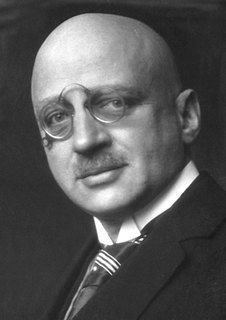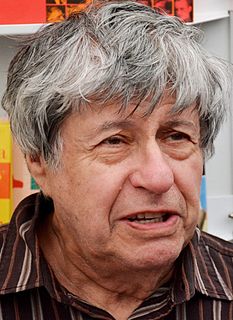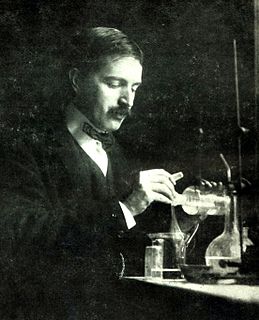A Quote by Albert Einstein
In science, moreover, the work of the individual is so bound up with that of his scientific predecessors and contemporaries that it appears almost as an impersonal product of his generation.
Quote Topics
Related Quotes
The field of scientific abstraction encompasses independent kingdoms of ideas and of experiments and within these, rulers whose fame outlasts the centuries. But they are not the only kings in science. He also is a king who guides the spirit of his contemporaries by knowledge and creative work, by teaching and research in the field of applied science, and who conquers for science provinces which have only been raided by craftsmen.
In science men have learned consciously to subordinate themselves to a common purpose without losing the individuality of their achievements. Each one knows that his work depends on that of his predecessors and colleagues, and that it can only reach its fruition through the work of his successors. In science men collaborate not because they are forced to by superior authority or because they blindly follow some chosen leader, but because they realize that only in this willing collaboration can each man find his goal.
It must be for truth's sake, and not for the sake of its usefulness to humanity, that the scientific man studies Nature. The application of science to the useful arts requires other abilities, other qualities, other tools than his; and therefore I say that the man of science who follows his studies into their practical application is false to his calling. The practical man stands ever ready to take up the work where the scientific man leaves it, and adapt it to the material wants and uses of daily life.
The classification of facts and the formation of absolute judgments upon the basis of this classification-judgments independent of the idiosyncrasies of the individual mind-essentially sum up the aim and method of modern science. The scientific man has above all things to strive at self-elimination in his judgments, to provide an argument which is as true for each individual mind as for his own.
I think men of science as well as other men need to learn from Christ, and I think Christians whose minds are scientific are bound to study science that their view of the glory of God may be as extensive as their being is capable. But I think that the results which each man arrives at in his attempts to harmonize his science with his Christianity ought not to be regarded as having any significance except to the man himself, and to him only for a time, and should not receive the stamp of a society.
Every few seconds a new book sees the light of day. Most of them will just be a part of the hum that makes us hard of hearing. Even the book is becoming an instrument of forgetting. A truly literary work comes into being as its creator's cry of protest against the forgetting that looms over him, over his predecessors and his contemporaries alike, and over his time, and the language he speaks. A literary work is something that defies death.
Almost all major scientific projects today are huge collaborations, yet we still have this public obsession with the idea of the individual scientific genius. One of my goals as a science communicator is to celebrate the collaborative dimensions of science, which I think will be critical for facing the ecological and resource challenges ahead. In a sense, we are all corals now.
No one is ahead of his time, it is only that the particular variety of creating his time is the one that his contemporaries who are also creating their own time refuse to accept. For a very long time everybody refuses and then almost without a pause almost everybody accepts. In the history of the refused in the arts and literature the rapidity of the change is always startling.
[T]he individual in whom the will for the light is strong and clear finds his heart inextricably bound up with the struggle of the forces of light in his native place and time. Much as he may long for the opportunity of fuller self- expression in a happier world, he knows that for him self-expression is impossible save in the world in which his mind is rooted. The individual in whom the will for the light is weak soon persuades himself that his opportunity lies elsewhere.



































